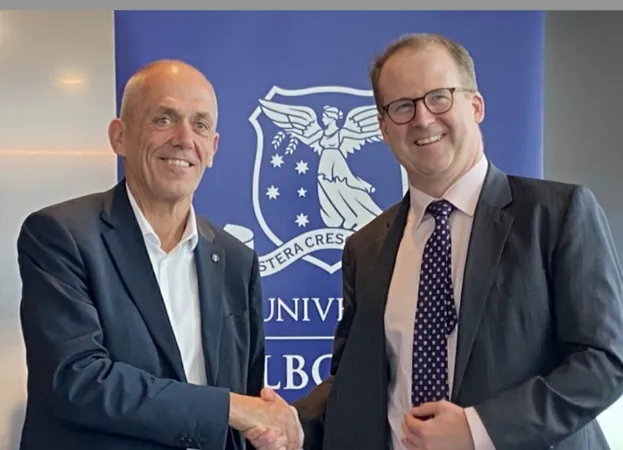
Groundbreaking New International Research Lab Launched in Australia to Revolutionize Cancer Treatments!
2024-11-08
Author: Ming
Exciting Development in Global Cancer Research
In an exciting development for global cancer research, the University of Melbourne is partnering with France's National Centre for Scientific Research (CNRS) to establish a cutting-edge International Research Laboratory in Melbourne, Australia. This innovation will not only expand but also strengthen existing collaborations between the cancer research team led by Professor Frédéric Hollande at the University of Melbourne and the laboratory of Dr. Patrick Mehlen in Lyon, France.
Introducing the PHANTOM Laboratory
Located at the prestigious Victorian Comprehensive Cancer Centre (VCCC), this new laboratory, aptly named ‘PHANTOM’—which stands for Plasticity, Heterogeneity, and Tumour Microenvironment—aims to expedite the discovery of new insights into cancer. The lab's unique focus will be on understanding the intricate behaviors of single cancer cells over time within various tissues, shedding light on what drives the formation and environmental adaptation of cancer cells.
Ceremonial Signing of the Letter of Intent
A ceremonial Letter of Intent was signed at the VCCC by Professor Mark Cassidy, Deputy Vice-Chancellor for Research at the University of Melbourne, and Professor Antoine Petit, Chairman and CEO of the CNRS, marking the official beginning of this promising venture.
A State-of-the-Art Research Facility
This state-of-the-art research facility will leverage cutting-edge technological approaches to investigate both genetic and non-genetic factors that contribute to cancer's adaptability. Professor Hollande emphasized the urgency of this research, stating that it targets critical mechanisms that induce treatment resistance in particularly challenging cases such as metastatic colorectal and pancreatic cancers—tumors notorious for their dismal survival rates.
Mission to Discover New Pharmaceutical Agents
Moreover, Dr. Mehlen highlighted the lab's mission to discover new pharmaceutical agents capable of preventing tumors from adapting to existing cancer treatments. This could represent a paradigm shift in our approach to therapy, offering new hope for patients battling advanced cancers that have thus far resisted conventional methods.
Significant Funding and Future Prospects
With significant funding from both CNRS and the University of Melbourne, this long-term partnership is poised to make impactful strides in cancer research, potentially transforming treatment protocols and improving outcomes for countless patients worldwide. As the lab gears up to open its doors, the scientific community is watching closely—could this be the breakthrough in cancer treatment we’ve all been waiting for?





 Brasil (PT)
Brasil (PT)
 Canada (EN)
Canada (EN)
 Chile (ES)
Chile (ES)
 España (ES)
España (ES)
 France (FR)
France (FR)
 Hong Kong (EN)
Hong Kong (EN)
 Italia (IT)
Italia (IT)
 日本 (JA)
日本 (JA)
 Magyarország (HU)
Magyarország (HU)
 Norge (NO)
Norge (NO)
 Polska (PL)
Polska (PL)
 Schweiz (DE)
Schweiz (DE)
 Singapore (EN)
Singapore (EN)
 Sverige (SV)
Sverige (SV)
 Suomi (FI)
Suomi (FI)
 Türkiye (TR)
Türkiye (TR)